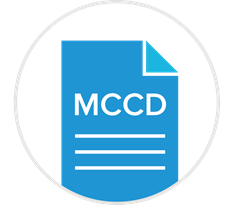Death certification serves both legal and health functions
A Medical Certificate of Cause of Death (MCCD) is a statutory requirement, it provides a permanent legal record of the fact of death and enables the family to register the death, make arrangements for the disposal of the body, and settle the deceased’s estate. In addition, a MCCD provides a record of causes of death for public health reasons.
a permanent legal record of the fact of death and enables the family to register the death, make arrangements for the disposal of the body, and settle the deceased’s estate. In addition, a MCCD provides a record of causes of death for public health reasons.
The legislative context and key differences from pre-2015
The Certification of Death (Scotland) Act 2011 was designed to introduce a system of independent scrutiny of death certificates. This aims to improve the quality and accuracy of the information on MCCDs and to improve public health information.
The act introduces a system of review of MCCDs by Medical Reviewers through random scrutiny of a representative sample of all MCCDs that are not reported to the procurator fiscal, or involving stillbirth. Each review examines the appropriateness and accuracy of the completed certificate. They do not examine the clinical care prior to death.
Additional key differences introduced by the Act from 13th May 2015 include:
- The end of additional paperwork and fees for cremations to make the process the same for everyone
- The necessity that all deaths must be registered before either a burial or cremation can take place.
CMO Guidance
Updated 2025 CMO Guidance for Doctors completing MCCDs is available here.GMC Guidance
View the GMC leaflet - New processes for death certification in Scotland: GMC guidance continues to apply
How to complete a paper-based Medical Certificate of Cause of Death form in Scotland
This animated short film guides certifying doctors through the process for completing a Medical Certificate of Cause of Death, or MCCD. An inaccurate MCCD can lead to further upset for people who are bereaved and delay funeral arrangements, so taking the time to complete the form in the right way can have a major impact. Also, by completing the MCCD accurately, certifying doctors are helping to provide better quality information about causes of death.
Click on the image to the right to watch the video or here to view it on the NHS Education for Scotland Vimeo channel.
A transcript for this animation can be found here.
General points of note
- An illegible paper form cannot be accepted by the Registrar for Births, Deaths, and Marriages, and will lead to a postponement in registering death and possible delay of the funeral.
- All entries must be completed clearly in black ink and BLOCK CAPITALS on the paper form.
- Timely and accurate completion of MCCDs is of great help to the bereaved families and friends as it reduces undue additional distress at an extremely difficult time.
- Health Boards should ensure that where a death occurs in hospital the consultant in charge of the patient’s care is involved in the completion of the death certificate wherever practicable, and that such involvement is clearly recorded in the patient records.